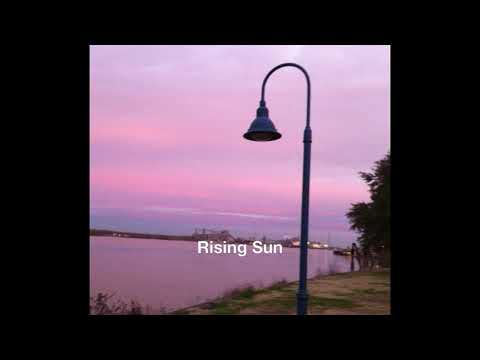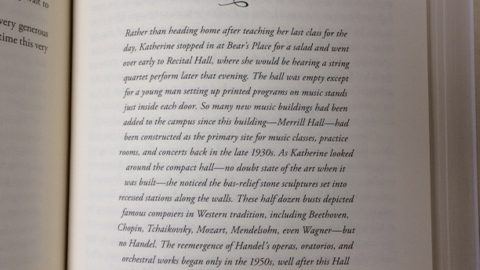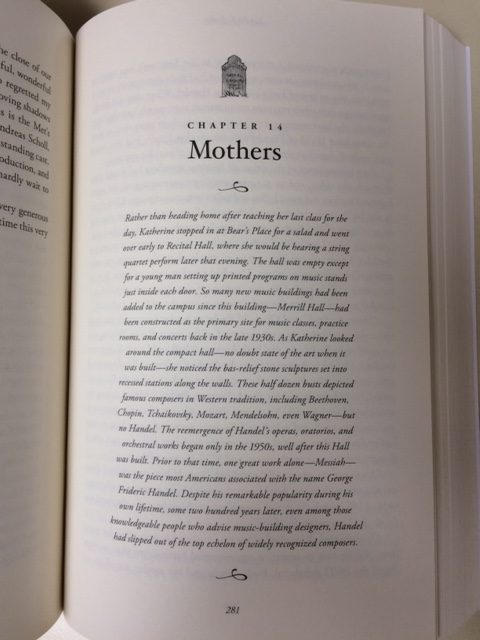Handel blog 2*
From Katherine: Most of you have signed on for this little Handel Seminar extension. Forella, I think you had a great idea! Thanks. I’ll post the comments that came in and set them up with a little editing. I know we could do this without this extra step, but that would take us into uncharted waters, and Forella wanted to keep it along the lines already familiar to us. Since it seems we will have unlimited time for this, I’ll just try to share bits every day and keep it short.
From Brad: So, I listened to the YouTube with the accordion and the guys singing about lieber Augustin—which sounded like bad German beer hall music to me. But I remember the tune as a song from grade school—“Did You Ever See a Lassie?” I don’t think the Lassie song had anything to do with the plague. And was this Augustin guy supposed to have died but still played music from his grave? I suppose I could look up this information myself, but I’d rather complain that we need a better explanation.
From Alison: Well, Katherine probably knows the folklore on this, but I’ll share what I know about the song. You are right, Brad, that it is the same tune as “Did You Ever See a Lassie.” I remember doing a kind of play or dance to that in grade school, too—something like, “Did you ever see a lassie go this way and that way and this way and that way.” But later, as an adult, I did hear the German version about “lieber Augustin,” and I was surprised to learn that it wasn’t really a folksong but was instead, as Katherine suggested, a song composed about the Plague years during Handel’s time. Supposedly the man who wrote the song was in fact named Augustin and he was someone who entertained people with his songs and his bagpipe playing. One time he was drunk and passed out. The local gravediggers found him lying along the road and assumed he was one of the many corpses they had the sad task of collecting and moving to a mass grave during this nightmarish time. They threw him in a grave along with many actually dead people. Augustin revived, found himself unable to get out of the deep grave, and started playing his bagpipe (which they had thrown in with him). Passersby heard him and pulled him out of the grave. He survived and wrote the song. That’s the story, as I remember it.
From Rayette: That’s an amazing story, isn’t it? I hadn’t known anything about it before, but I checked into it a little. You can read about it here. But I just wanted to say how interesting I thought it was that something so disturbing as people dying in such numbers and being buried in mass graves—the whole history of the Plague—that it would be commemorated in a song, and a children’s song at that. It reminds me of the John and Ol’ Massa stories that joked about slavery. Humor sometimes helps us handle some horrible reality.
From Katherine: Yes. I wonder if Handel knew the song. I wonder if it was something people sang back then—in the years just after the last great sweep of the Plague through Europe. It really did act like a folksong, even if we do know who composed it. Any time a song or legend or joke circulates widely enough for it to enter tradition, you can bet that the topic it brings up is one people find disturbing. The Plague, like the coronavirus pandemic of today, was frightening, a time of fear and loss. Very unsettling. On that somber note, thanks, Brad, Alison, Rayette. That’s it for today.
*All posts listed as “Handel blog” are texts that use the fictional characters in my book The Handel Letters: A Biographical Conversation. As in that book, the posts will often reference things from Handel’s life or time period as starting points. And the post will cite a page or paragraph in the book when it seems relevant. Find The Handel Letters.


